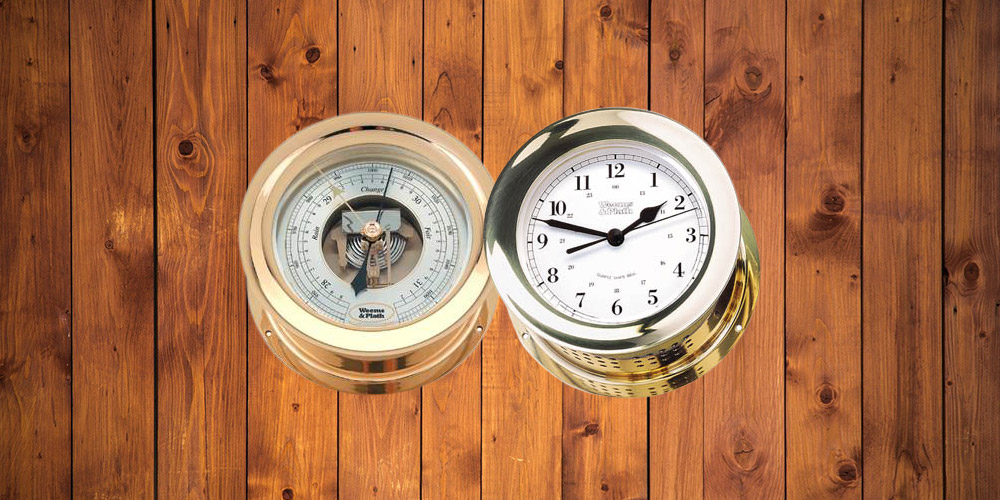
What size clock do you want?
Probably the most important factor in selecting a clock and barometer set is the size of the dial. Our selection ranges from as small as 2 3/8" to as large as 6". The bezel around the dial also increases the apparent size, with flanged bezels like the Atlantis and Chelsea models having a 5 1/2" case diameter.
Face style: the dial of the clock or barometer on which the numerals are written. The face can be ornate, simple, traditional, military-like or somewhere in between. Some boaters prefer the 19th century look of flowing script and ornate details, and that is probably fine on a desk or mantle. On a boat, where light conditions are generally poor, and functionality is of greater importance, simple, large numbers and letters are preferred.
Bezel mechanism: the rim of the clock or barometer that holds the glass covering. The bezel can be opened or removed to access the clock/barometer mechanism, and the two most common methods of closure are screw-on or hinge with latch. The screw-on versions are slower to open and close, but are more airtight and have a cleaner appearance.
Case construction: the cylindrical housing for all the interior components. Case construction varies immensely, from stamped sheet material to heavy forged material. Weems & Plath uses forged brass cases that are machined, polished and coated with heavy marine lacquer to protect the finish. Chelsea also uses forged cases.
Do you want a quartz clock or a mechanical clock?
Modern clocks use an electronic quartz movement, usually powered by one AA alkaline battery. Other than changing the battery once each year (when Daylight Savings time changes in the Spring or Fall) quartz clocks require no maintenance. Mechanical clocks are essentially works of machine art from the 19th century. Key wind clocks need to be wound every eight days, and have precision 11-jewel movements. Chelsea Clock Company has a long history as one of the last and greatest American clockmakers, and their older clocks are collector’s items. The movement in their Shipstrike Clock is German-made, as are the movements in the clocks and barometers from Weems & Plath.
Bottom line: If you want a good clock to use on your boat, get a quartz clock, either nonstriking or striking (don’t worry, there is an OFF switch to deactivate the bells from striking every half hour). For those who want to spend more for precision metalworking as an artform, and who love traditional objects, a mechanical clock is a good choice.